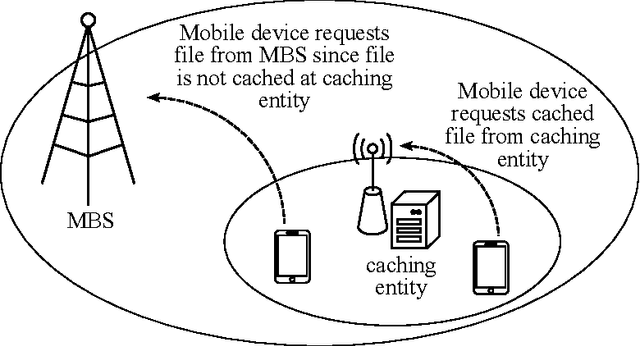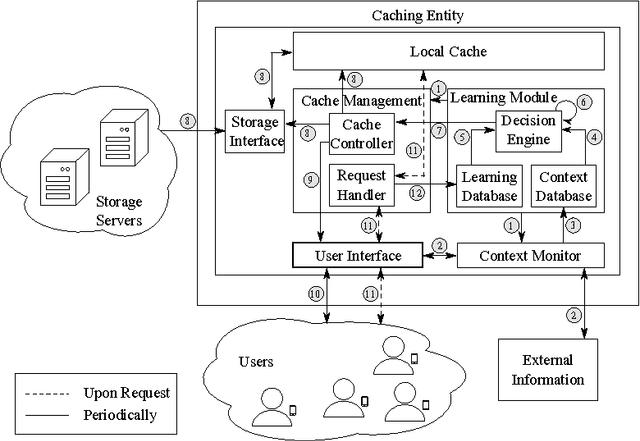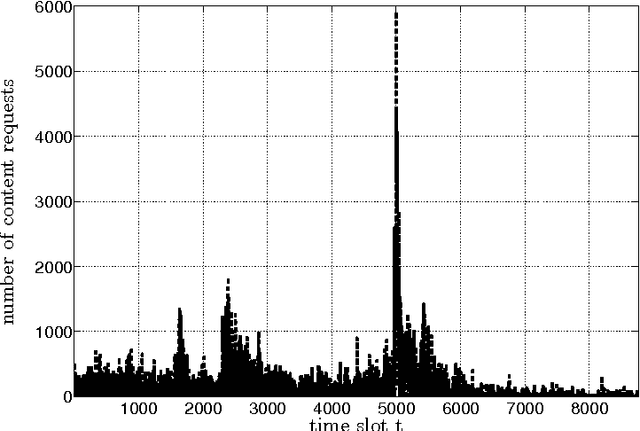Anja Klein
Decentralized Online Learning in Task Assignment Games for Mobile Crowdsensing
Sep 19, 2023Abstract:The problem of coordinated data collection is studied for a mobile crowdsensing (MCS) system. A mobile crowdsensing platform (MCSP) sequentially publishes sensing tasks to the available mobile units (MUs) that signal their willingness to participate in a task by sending sensing offers back to the MCSP. From the received offers, the MCSP decides the task assignment. A stable task assignment must address two challenges: the MCSP's and MUs' conflicting goals, and the uncertainty about the MUs' required efforts and preferences. To overcome these challenges a novel decentralized approach combining matching theory and online learning, called collision-avoidance multi-armed bandit with strategic free sensing (CA-MAB-SFS), is proposed. The task assignment problem is modeled as a matching game considering the MCSP's and MUs' individual goals while the MUs learn their efforts online. Our innovative "free-sensing" mechanism significantly improves the MU's learning process while reducing collisions during task allocation. The stable regret of CA-MAB-SFS, i.e., the loss of learning, is analytically shown to be bounded by a sublinear function, ensuring the convergence to a stable optimal solution. Simulation results show that CA-MAB-SFS increases the MUs' and the MCSP's satisfaction compared to state-of-the-art methods while reducing the average task completion time by at least 16%.
Context-Aware Hierarchical Online Learning for Performance Maximization in Mobile Crowdsourcing
May 10, 2017



Abstract:In mobile crowdsourcing, mobile users accomplish outsourced human intelligence tasks. Mobile crowdsourcing requires an appropriate task assignment strategy, since different workers may have different performance in terms of acceptance rate and quality. Task assignment is challenging, since a worker's performance (i) may fluctuate, depending on both the worker's current context and the task context, (ii) is not known a priori, but has to be learned over time. However, learning context-specific worker performance requires access to context information, which workers may not grant to a central entity. Moreover, evaluating worker performance might require costly quality assessments. In this paper, we propose a context-aware hierarchical online learning algorithm addressing the problem of performance maximization in mobile crowdsourcing. In our algorithm, a local controller (LC) in the mobile device of a worker regularly observes its worker's context, his decisions to accept or decline tasks and the quality in completing tasks. Based on these observations, the LC regularly estimates its worker's context-specific performance. The mobile crowdsourcing platform (MCSP) then selects workers based on performance estimates received from the LCs. This hierarchical approach enables the LCs to learn context-specific worker performance and it enables the MCSP to select suitable workers. In addition, our algorithm preserves worker context locally, and it keeps the number of required quality assessments low. We prove that our algorithm converges to the optimal task assignment strategy. Moreover, the algorithm outperforms simpler task assignment strategies in experiments based on synthetic and real data.
Context-Aware Proactive Content Caching with Service Differentiation in Wireless Networks
Dec 16, 2016



Abstract:Content caching in small base stations or wireless infostations is considered to be a suitable approach to improve the efficiency in wireless content delivery. Placing the optimal content into local caches is crucial due to storage limitations, but it requires knowledge about the content popularity distribution, which is often not available in advance. Moreover, local content popularity is subject to fluctuations since mobile users with different interests connect to the caching entity over time. Which content a user prefers may depend on the user's context. In this paper, we propose a novel algorithm for context-aware proactive caching. The algorithm learns context-specific content popularity online by regularly observing context information of connected users, updating the cache content and observing cache hits subsequently. We derive a sublinear regret bound, which characterizes the learning speed and proves that our algorithm converges to the optimal cache content placement strategy in terms of maximizing the number of cache hits. Furthermore, our algorithm supports service differentiation by allowing operators of caching entities to prioritize customer groups. Our numerical results confirm that our algorithm outperforms state-of-the-art algorithms in a real world data set, with an increase in the number of cache hits of at least 14%.
* 32 pages, 9 figures, to appear in IEEE Transactions on Wireless Communications, see http://doi.org/10.1109/TWC.2016.2636139
 Add to Chrome
Add to Chrome Add to Firefox
Add to Firefox Add to Edge
Add to Edge